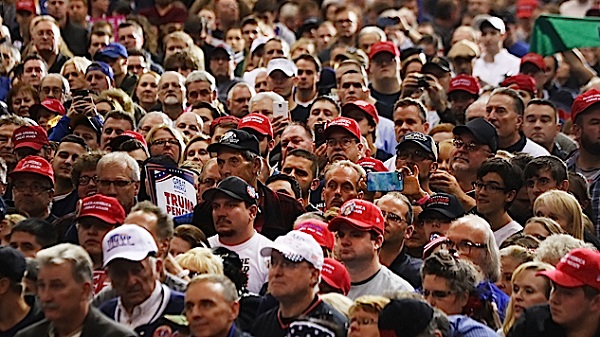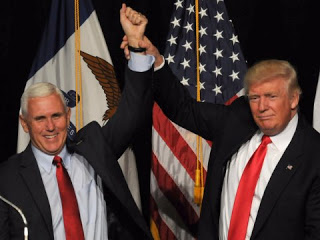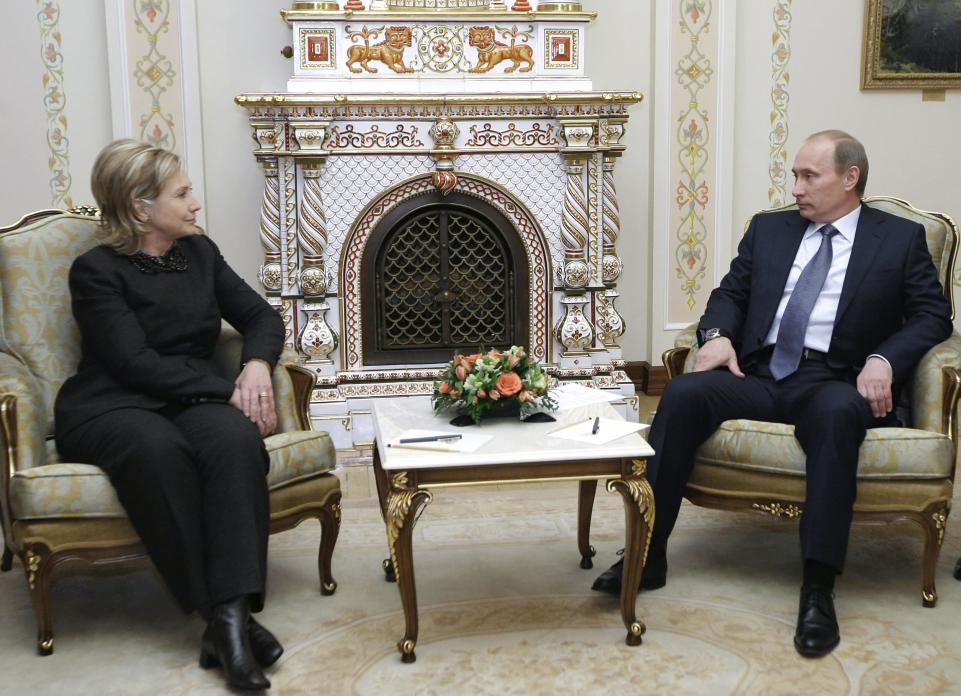A Look At the 2016 Presidential Candidates
 Now that the Iowa caucuses are over, I will begin with who I didn’t support and why. First, there is Jeb Bush. Bush is a good guy who had a conservative record as a governor but throughout this campaign, he never got good traction and the first reason was simply his last name. His negative was high even among Republicans, and while Gallup's most recent polls had him unfavorable at 45%, below that of Trump and Clinton, but far worse than other Republicans.
Now that the Iowa caucuses are over, I will begin with who I didn’t support and why. First, there is Jeb Bush. Bush is a good guy who had a conservative record as a governor but throughout this campaign, he never got good traction and the first reason was simply his last name. His negative was high even among Republicans, and while Gallup's most recent polls had him unfavorable at 45%, below that of Trump and Clinton, but far worse than other Republicans.
The problem with the Bush campaign began with the idea of inevitability and running a general election campaign in the primary, but this strategy failed from the beginning since the grassroots were not excited about another Bush and with other choices available, they rejected the thesis that Bush’s march to the nomination was inevitable.
Starting in the late spring, he moved toward conservative reformer to counter Scott Walker, but by the end of summer and after the advent of Trump, Bush numbers plummeted. His Super PAC began a scorched earth strategy against other “establishment” candidates, in particular Marco Rubio. Steve Hayes reported, “In the 'fight' between Donald Trump and conservatism, Trump has had few better allies than Right to Rise, the super PAC supporting Bush’s candidacy. Right to Rise, like an all-pro right guard, helped clear a path for Trump by blocking several of his would-be tacklers, in particular Marco Rubio.“If other campaigns wish that we’re going to uncork money on Donald Trump, they’ll be disappointed,” Mike Murphy, Chief Strategist of Right to Rise, told the Washington Post in August. “Trump is, frankly, other people’s problem.” In an October interview with Bloomberg, he said: “I’d love a two-way race with Trump at the end.”
The Bush Super PAC decided that they would prefer a two way race with Trump through the destruction of others but as the fall progressed to where we are now, Bush's chances of being the guy is mostly nil. Powerline blogger Steve Hayward added, “Can we pass a law prohibiting Mike Murphy (the director of Bush’s Super PAC Right to Rise) from ever working on a Republican campaign again?” (No candidate has the ability to tell a Super Pac how to run their campaign and there is prohibition against any cooperation between a Super Pac and a candidate campaign. The Super PAC Right to Rise did little to enhance Bush’s position and did more to damage it.)
Bush’s campaign may have been doomed from the beginning due to his last name and the fact that Republicans were ready to move on. His style of campaigning resembled a political nerd as opposed to a leader. Bush has plenty of good ideas but he was unable to promote those ideas, whereas Trump managed to hit a cord with many blue collar and even moderate voters. The irony is that Trump’s tax plan was similar in many ways to Bush's, but he did a far better job of selling his plan as giving the Middle Class a fair opportunity to succeed. His Super PAC did more damage to the Party than it did to help Bush, but then I have already discuss the coming marriage of the establishment and Donald Trump. And I have made the case that Trump is a moderate not a conservative at this stage in his political career.
Nor did I vote for Donald Trump, but I will support a Trump candidacy for the President if he is the Republican nominee. However, it needs to be noted, he is the weakest candidate Republicans can put up, and while his campaign has been successful, there are flaws that could hurt in a general election. Trump's advantages begin with reaching out to a group, white blue collar voters who have been left behind over the past fifteen years and his strength lies in adding Republican numbers in the Midwest and add to their total throughout the south. Trump can beat Hillary or Bernie Sanders but he has poll numbers consistently behind both Democrats whereas Rubio numbers have moved ahead of both Sanders and Clinton. It can be said that polls out this far can change, but Trump’s weakness lies in his trip to the White House. Trump is far behind all of the other candidates among Hispanics, which means he will lose Nevada, Colorado and New Mexico, states George Bush carried in 2004. So there goes 20 electoral votes and while our polls show that Trump does well in Florida; he has a smaller margin of error throughout the country. Whereas Rubio could take these three states plus Florida, Trump is already 20 Electoral College votes behind Bush in 2004. For Rubio, these four states could add 55 Electoral College votes from Romney’s total and this leaves Ohio short of the White House. Trump would have to carry Florida, Ohio, Virginia and either Iowa or New Hampshire to capture the White House, and this would include winning enough black voters, and in Florida, enough Hispanic to go with his white blue collar coalition. He is capable of that, but as one can see, his margin for error is slimmer than Rubio or even Cruz, who polls better against Democrats than Trump. (I will add that Cruz's national strategy is similar to Trump and some just as Sean Trende view Trump a stronger national candidate than Cruz.)
For me, Trump has other flaws, not the least his trade policy. At a time when the world trade is retrenching and declining, his trade policies will only add to this retrenchment and potentially undermine his tax plans and his ability to help the Middle Class to move up from the stagnation that exists. While Trump is still evolving on many issues, there is one issue that he has been consistent in for the past three decades: his disdain for free trade. Thirty years ago, he warned us about the Japanese and how they would be beating us in trade deals: well that turned out wrong as the United States in the 80’s and 90’s moved further ahead of the Japanese and as the Chinese economy is slowing down and may be in recession, Trump views them as a similar economic threat.
There is one thing that Trump will end up doing for the GOP that will help their future electoral chances, that is on immigration and not for the reason most would think. Trump's own plan is based on the touchback provision proposed by Senator Kay Bailey Hutchison a decade ago, and the end result of his plan will mean that the number of illegals allowed to stay will be similar to what we have today. His emphasis on border security, making illegals pay a fine or a remittance on money sent back home, an immigration policy based on needed job skills and the fate of the illegals are not much different than what others have proposed. The biggest debate will be on future limits to legal immigration, but if anyone that thinks that Trump won’t back down on the touchback to get a deal and simply allow the illegals here now to stay without his touchback, don’t know Trump’s history as a wheeler and dealer. The irony is that Trump will open the door to a plan that allows those here illegally now to stay and that will help with Hispanics. (Our polls do show that less than half of Hispanic are supportive of a path to citizenship but two thirds of Hispanics do support options to allow illegals to stay, but it is also true that at least 20% of those supporting, support allowing illegals to stay but no path to citizenship.)
Trump's tone has done enough damage to his relationship with Hispanics and this has narrowed his option of winning the White House against Hillary Clinton or Bernie Sanders, but his plan can be sold to Hispanics as a plan that will restore the rule of law while allowing Hispanic illegals to stay. Trump may not be the person to sell the idea.







